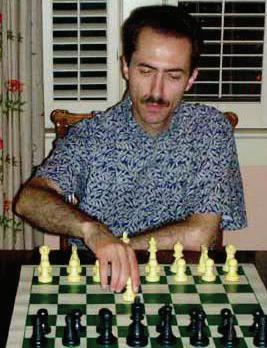
2 minute read
Chess Helps
Game improves critical thinking skills,
say; supporters of the game invited to Feb. 22 chess luncheon
Advertisement
STORY BY BRACKEN MAYO
promoting chess in various ways in the community, and he invites those interested in the game to Murfreesboro Community Chess meetups, held every Friday evening at Barnes & Noble at The Avenue.
“It is not just for kids; adults should absolutely be playing as well. We are getting a core group of regulars there, including families of some of my students,” Zhislin said.
Mitchell has also been in communication with State Representative Mike Sparks regarding efforts to make chess instruction and critical thinking courses a part of the curriculum in schools all across the state.
“Rob has really gotten behind this,” Sparks said.
While the legislator said he hesitates to pile on more mandatory requirements for the state’s schools, he would like to introduce some sort of a resolution recognizing chess and its critical thinking and educational benefits to bring awareness to the game and strike up discussion about teaching it in more schools.
“The area of critical thinking skills is something we are losing. We have a real problem with these kids,” Sparks said.
For now, Mitchell continues working to build local support for the chess movement any way he can, and seeks to unite those with interest in forming a community chess mentorship system, or even a local celebrity chess tournament event.
“Teaching the children to think is how we get Rutherford County to be the best it can be, how we get Tennessee and America to be the best we can be,” Mitchell said.
attention span of children and leads some to perceive that “Yes, I am smart.”
Further, aside from life lessons, a chess board can be useful in teaching fractions and geometry.
Mitchell has recruited the help of Jerry Nash, Chess in Education Commission Chairman with the International Chess Federation (FIDE, or Fédération Internationale des Échecs), to promote chess as a method of teaching.
Nash said he has seen the effects of poor decision making among college students and believes in the power of chess to enable student success and improve critical thinking skills. He advises starting chess instruction early, at a fourth- or fifth-grade level, to plant the seeds of critical thinking skills well before high school graduation and adulthood.

“When teachers introduce chess to students, they create the opportunity for students to develop the skills they need to be successful. Teachers consistently report improvements in student behavior and positive changes in the school culture,” Nash said. “When teachers learn how to teach chess, they can better achieve their calling to make a difference in their community and beyond.”
Igor Zhislin certainly shares a passion for chess, and for teaching the game to youngsters.
The former Ukrainian student champion has long been a chess leader in the Murfreesboro area. Zhislin has guided a Central Magnet School team to a national chess championship and currently leads the chess program at McFadden School of Excellence.
He said he admires the mission of
He invites any community members interested in teaching others the game of chess, helping raise funds and interest for getting the game in the schools, sharing ideas on how chess can benefit others, involving their organization in promoting the game, or just desiring to gather with other chess enthusiasts to play and discuss chess, to a Murfreesboro Chess Lunch at Carmen’s Taqueria, 206 W. Northfield Blvd., Murfreesboro, from 11 a.m.–1 p.m. Wednesday, Feb. 22.
For more information, contact Rob Mitchell at rmitchell@rutherfordcountytn.gov or 615-426-7373. Murfreesboro Community
Chess meets at the Murfreesboro Barnes & Noble, 2615 Medical Center Pkwy., every Friday from 6 to 9 p.m. For more information on incorporating chess into a school curriculum or launching a school chess program, contact jerry@chessinschools.us.











































